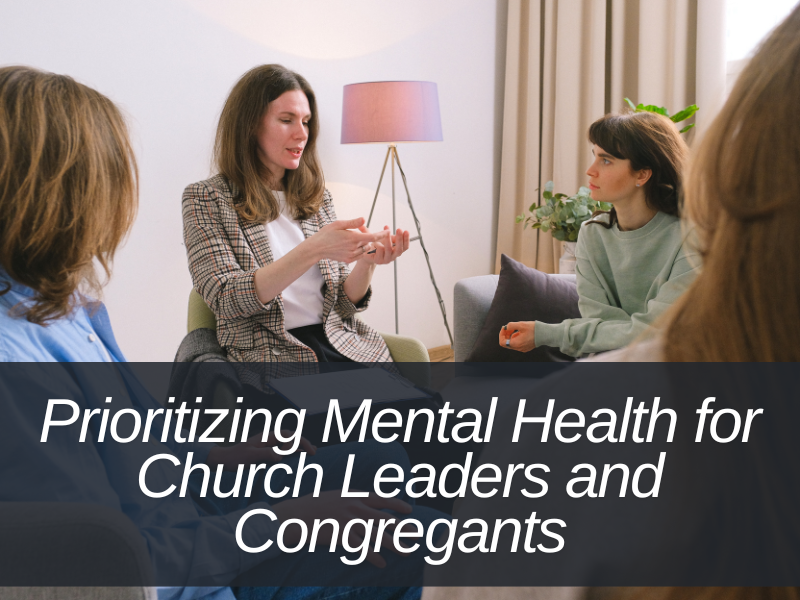Church leaders will encounter unexpected challenges in 2025, which call for proactive approaches and visionary leadership. Church leaders must quickly adjust to the changing cultural dynamics, financial challenges, technology breakthroughs, and changing socioeconomic landscape. This piece examines 15 amazing ways church leaders can get ready for obstacles in the year 2025. Each strategy is supported by useful advice, scripture, and insightful analysis to help leaders succeed in the years to come.
Ways Church Leaders Can Prepare For Challenges In 2025
1. Embracing Digital Transformation in Ministry
In 2025, digital church transformation will be essential for growth. Church leaders need to adopt church technology tools to enhance communication, worship, and outreach. Platforms like YouTube, Facebook, and Zoom are invaluable for online church services and connecting with younger generations. Technology allows churches to reach a wider audience and maintain engagement, even remotely.

Bible Verse: “Go into all the world and preach the gospel to all creation.” (Mark 16:15)
Adopting digital tools enables churches to fulfill this great commission with ease.
Here are 15 other essential technology tools for churches that can enhance productivity, engagement, and ministry impact:
1. Planning Center
– A versatile Church Management Software (ChMS) for member tracking, volunteer scheduling, and event planning.
Key Feature: Integrated worship planning tools for service scheduling and music arrangements.
2. Tithe.ly
– Online giving platform designed for churches to manage donations securely.
Key Feature: Text-to-give functionality and recurring donation setup.
3. ProPresenter
– Powerful church presentation software for lyrics, scripture, and multimedia displays.
Key Feature: Seamless slide transitions and video integration during services.
4. OBS Studio
– Free, open-source software for live streaming church services to YouTube, Facebook, or Twitch.
Key Feature: Customizable scenes for professional-looking broadcasts.
5. Squarespace
– Website builder for creating professional church websites with event calendars and donation links.
Key Feature: Mobile-friendly designs with easy-to-use templates.
6. Subsplash
– A church app platform offering sermon uploads, notifications, and live streaming.
Key Feature: Custom-branded apps for churches to engage members on the go.
7. Mailchimp
– Email marketing software for sending newsletters, event updates, and prayer requests.
Key Feature: Pre-designed templates and detailed audience analytics.
8. SongSelect by CCLI
– A tool for accessing worship music lyrics, chord sheets, and sheet music.
Key Feature: Integration with presentation tools like ProPresenter.
9. Ministry Scheduler Pro
– Volunteer management software to schedule and communicate with church volunteers.
Key Feature: Automated scheduling based on volunteer availability.
10. Adobe Premiere Pro
– Professional video editing software for creating sermon videos and promotional content.
Key Feature: Advanced tools for transitions, effects, and audio editing.
11. Hootsuite
– Social media management tool to schedule posts and track engagement.
Key Feature: Multi-platform scheduling and detailed analytics.
12. Logos Bible Software
– Comprehensive Bible study platform with commentaries, dictionaries, and sermon preparation tools.
Key Feature: Advanced search capabilities for in-depth theological research.
13. Eventbrite
– Event management tool for managing church conferences, retreats, and community events.
Key Feature: Online ticketing and registration with payment options.
14. KidCheck
– Child check-in system ensuring secure and organized childcare during church services.
Key Feature: Barcode scanning and guardian notifications.
15. Google Drive
– Cloud storage platform for collaborative access to sermons, documents, and media.
Key Feature: Real-time collaboration on shared files.
2. Fostering Emotional Intelligence in Leadership
Leaders who exhibit emotional intelligence can effectively connect with their congregations, empathize with their needs, and manage stress and conflict with grace. Developing this skill will be crucial for pastors in handling the emotional complexities of 2025, ensuring that their leadership remains compassionate and well-balanced.

Bible Verse: “A person’s wisdom yields patience; it is to one’s glory to overlook an offense.” (Proverbs 19:11)
Emotional intelligence helps leaders approach every situation with wisdom and patience, demonstrating Christ-like leadership.
3. Strengthening Congregational Engagement
A church that actively engages its members will see lasting growth. In 2025, church member engagement will be pivotal. Pastors must cultivate a culture of involvement, where members are encouraged to contribute, volunteer, and grow spiritually. Church activities, outreach programs, and volunteerism should be strategic and meaningful.
Bible Verse: “Let us not give up meeting together, as some are in the habit of doing, but encourage one another.” (Hebrews 10:25)
This verse highlights the importance of congregational participation in maintaining the vitality of the church.
Financial stability will be a key challenge in 2025. Church leaders must implement sound church financial management strategies, focusing on budgeting, fundraising, and donor relations. Fundraising for churches can be done through both traditional and online platforms to ensure consistent income for ministry work.

Bible Verse: “Bring the whole tithe into the storehouse, that there may be food in my house.” (Malachi 3:10)
This scripture underscores the importance of financial stewardship and faithful giving.
5. Preparing for Cultural Shifts in Society
Cultural shifts often bring challenges to churches, and 2025 will be no different. Church leaders need to stay informed about cultural trends and adapt their ministries accordingly. They must address topics like inclusivity, justice, and societal issues with biblical integrity, while maintaining the church’s core values.

Bible Verse: “Do not conform to the pattern of this world, but be transformed by the renewing of your mind.” (Romans 12:2)
Leaders must stay rooted in biblical truth while navigating cultural changes.
6. Building Strong Support Networks for Pastoral Care
Pastoral leadership can be isolating, and 2025 will require leaders to build strong support networks. Mentorship programs and peer support groups will ensure that pastors receive the care and advice they need to thrive. Pastors who take care of their emotional and spiritual health are better equipped to serve their congregations.

Bible Verse: “Two are better than one, because they have a good return for their labor.” (Ecclesiastes 4:9)
Support networks help pastors carry the burden of leadership more effectively.
Here are few Steps to Build a Support Network for Pastors
Building a robust support network is crucial for pastors who want to ensure their well-being and enhance their ability to care for their congregations effectively. Here are detailed steps to establish a strong support system:
Identifying Needs and Potential Sources of Support
Before creating a support network, pastors should evaluate their needs.
- Spiritual Needs: Identify individuals or groups who can provide spiritual guidance and accountability. This may include fellow pastors, mentors, or prayer partners.
- Emotional Support: Seek friends or counselors who can offer a listening ear and emotional encouragement.
- Practical Support: Recognize areas where help with logistics, administration, or ministry tasks is needed.
Pastors should also consider the diversity of their sources, balancing internal (congregational) and external (community or professional) support systems.
Building Relationships with Other Church Leaders
Connecting with fellow church leaders can foster mutual support and collaboration.
- Attend Pastors’ Conferences and Retreats: These events provide opportunities to network, share experiences, and form meaningful relationships with peers facing similar challenges.
- Join Local Ministerial Alliances: Many communities have associations for church leaders to discuss common issues, share resources, and collaborate on community projects.
- Establish Mentor-Mentee Relationships: Seek guidance from seasoned pastors who can offer insights and advice based on their experiences.
Encouraging Collaboration with Community Organizations
Pastors can benefit from working with organizations that align with their ministry goals.
- Partner with Nonprofits: Collaborate with charities, counseling centers, and social service agencies to provide resources for the congregation and themselves.
- Engage with Local Businesses: Establish relationships with businesses that might sponsor church events or provide discounts for pastoral needs.
- Foster Interfaith Dialogues: Connect with leaders of other faith communities to share ideas and support broader societal issues collectively.
Nurturing Relationships Within the Congregation
While external support is valuable, cultivating a supportive church culture is equally important.
- Form Ministry Teams: Delegate responsibilities to trusted individuals within the congregation to share the workload.
- Create a Pastoral Care Committee: A dedicated group can oversee aspects like pastor appreciation, rest schedules, and health.
- Develop Lay Leaders: Training members to handle certain aspects of ministry (e.g., counseling, prayer groups) ensures the pastor doesn’t shoulder every responsibility alone.
Leveraging Support from Family and Friends
Family members and close friends often provide the most consistent support.
- Share Ministry Challenges: Be open with trusted loved ones about the joys and difficulties of ministry.
- Schedule Quality Time: Prioritize time with family to recharge emotionally and physically.
- Involve Them in Ministry: When appropriate, include family members in church activities to foster a sense of shared purpose.
Establishing Boundaries for Healthy Support
Building a support network also involves knowing when and how to seek help.
- Set Limits: Clearly define what aspects of ministry to share with each part of the support network. For example, some topics may be best discussed with a professional counselor rather than a congregational member.
- Balance Independence and Reliance: While it’s essential to seek support, avoid overburdening any one person or group.
Regularly Evaluate and Strengthen the Network
A support network should grow and adapt with time.
- Seek Feedback: Ask for input from mentors, peers, and congregational members on how to improve collaboration.
- Stay Connected: Regularly check in with support network members to maintain strong relationships.
- Expand When Necessary: If ministry demands increase, look for new connections to meet evolving needs.
7. Developing Resilience in Leadership
The pressures of ministry can wear down even the most dedicated leaders. Resilient church leadership will be a must in 2025. Leaders should invest in personal growth and stress management techniques, such as prayer, exercise, and rest, to maintain their strength in times of adversity.

Bible Verse: “But the one who stands firm to the end will be saved.” (Matthew 24:13)
This verse reminds leaders to persevere and remain resilient, knowing that God is with them.
8. Leveraging Social Media for Outreach and Connection
Social media is a powerful tool for church outreach in 2025. Church leaders should create engaging content that speaks to both the spiritual and practical needs of their communities. This includes devotional messages, inspirational quotes, and community events that foster connection and growth.

Bible Verse: “Let your light shine before others, that they may see your good deeds and glorify your Father in heaven.” (Matthew 5:16)
Social media can amplify the reach of the church, shining a light on the gospel message.
9. Adapting to Hybrid Worship Models
The hybrid church model (in-person and online services) will continue to be essential in 2025. Church leaders must invest in livestream solutions to ensure that those who cannot attend in person are still able to participate in worship and community activities.

Bible Verse: “Where two or three are gathered in my name, there am I with them.” (Matthew 18:20)
Hybrid worship allows believers to gather in spirit, even when separated by distance.
10. Prioritizing Mental Health for Church Leaders and Congregants
Mental health will be a major focus in 2025, not just for the congregation, but for the church leaders themselves. Pastors should promote mental wellness and spiritual health initiatives, ensuring that everyone, including themselves, is supported during tough times.

Bible Verse: “Cast all your anxiety on him because he cares for you.” (1 Peter 5:7)
Leaders must encourage themselves and others to rely on God for peace and healing.
FAQs
- What are some ways church leaders can stay spiritually strong amidst challenges?
- Church leaders can maintain spiritual strength through regular prayer, Bible study, and participation in support networks with fellow pastors. Investing in personal health and seeking mentorship is also key.
- How can church leaders improve congregational engagement in 2025?
- By offering interactive events, fostering small groups, creating opportunities for involvement, and using digital tools to stay connected. Leaders should also encourage spiritual growth through educational programs.
- What technology tools should church leaders consider for 2025?
- Church leaders should consider tools for live streaming, online giving, church management systems, and platforms for community engagement like social media and email newsletters.
- Why is emotional intelligence important for church leaders?
- Emotional intelligence helps leaders connect with their congregation, manage conflict, and show empathy. It enables them to lead with compassion and wisdom, even in difficult times.
- What steps can church leaders take to manage financial challenges in 2025?
- Church leaders should focus on budgeting, creating fundraising campaigns, and encouraging faithful giving through online platforms and other creative fundraising methods.
Preparing for the future challenges of 2025 is a critical task for church leaders. By adopting these strategies, grounded in biblical wisdom and modern practices, church leaders will be well-equipped to lead their congregations through the evolving landscape ahead.



